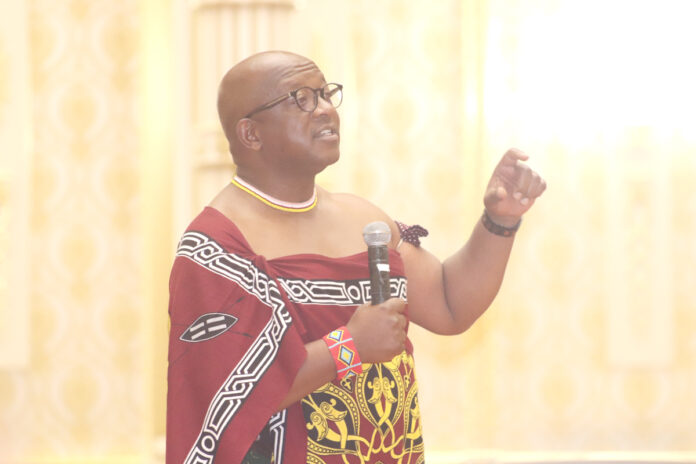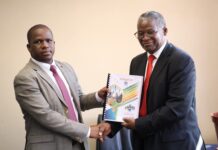Government will clear E6.86 billion loan debt for in the next five years.The bill is 15 loans
This was revealed by Minister of Finance Portfolio Committee Chairperson Marwick Khumalo during Eswatini Broadcasting and Information Services (EBIS) programme Tindzaba Letikhetsekile on Thursday.
Khumalo said parliament has already approved E11.23 billion (US$629 million) loan bills this year for capital projects, and these were maturing debts that were being given out.
He was responding to concerns raised by independent economists represented by UNESWA Economics Lecturer Sanele Sibiya, that parliament was approving every loan bill tabled before them.
These include the Strategic Oil Reserve Bill worth E5.2 billion, African Development Bank Loan Bill worth E2.5 billion for the Eswatini Road Infrastructure Improvement, the International Development Association Finance Bill and the Fiscal Management Loan Bill worth E1.8 billion.
Sibiya wondered what would become of the country, citing what he termed as a high debt to gross domestic product (GDP) ratio. He said it was already above 40 per cent, which was a bit high to the threshold government should have.
He said money would be inflated in the economy which might increase the output. Historically, he said, this had happened, leading to the local circulation to increase and the economy decreased as most of the things were imported. “We have not included the debt portfolio and how it will be affected, hence the call to government’s transparency on how much total will be paid this year; the total cost of loans and how they plan to move forward.
Also Read: DPM to construct houses for people with albinism
“The three loans focus on capital projects for this year only and the International Monetary Fund (IMF) has been calling for government to lessen the loans gradually so that the debt to GDP ratio would go down.” Meanwhile, Khumalo noted that during his budget speech, Minister of Finance Neal Rijkenberg rolled out finances for each project; some would be from local resources like the Southern African Customs Union (SACU) and the Eswatini Revenue Service (ERS), while some funds would be borrowed and he detailed what the funds would be used for.Therefore, he said, the Bills about the loans were debated in parliament, which was not new. He made an example of the access to electricity loan, stating that the money must be outsourced from somewhere else.
The Lobamba lomdzala memeber of Parliament said the focus should not be on the loans only, but also on how much has been paid already from the previous loans, and further stated that government has never defaulted in its international obligation in debts like the IMF. He noted that the information the independent economists have may be incomplete because their debt to GDP ratio was not a true reflection because it was not compared to what has been paid. He said they needed access to information so that they feed the right information to the nation. The chairperson added that as much as the country should avoid loans, but if they were repaid well more loans can be sought for development. Of course, he ackonowledged that all loans have terms and conditions, but they should not make or leave the people worse off.
The beneficiary should be assured that they would get the money.
“We have local revenue generated, but it is not enough to finance everything that the country needs to do, hence the need to seek loans just like in a formal setup. We should be able to pay the loans and it is important to note that we have not defaulted. From this year until 2030, the country will pay E6.86 billion and we will see to it that it does not fail to service them.
“This year, the information we have as finance committed is that the debt to GDP ratio stands at 43.5 per cent and last year it was 39.8 per cent. This means that our country is a low risk and we are not doing bad in Africa. The economy still allows government to seek loans in terms of growth, at times the country might not allow because circumstances are volatile then,” he added.
He added that if the terms and conditions suppressed Emaswati, they would call for amendment, which was provided for by the Construction Industry Council (CIC) because the obligations are meant to be respected, so that Emaswati were empowered. “As parliamentarians, we cannot respond for cabinet because we are at the tail end of the processes, as much as we think we should be involved from the onset,” he stated.
He said bills were passed so long as the was meant to develop or improve the country. For example, the electrification of rural areas and provision of potable water improve the lives of Emaswati. Khumalo added that as much as there were more loans obtained than local revenue, he assured that they did not just pass every bill tabled in parliament but considered the impact on the people and infrastructure.








